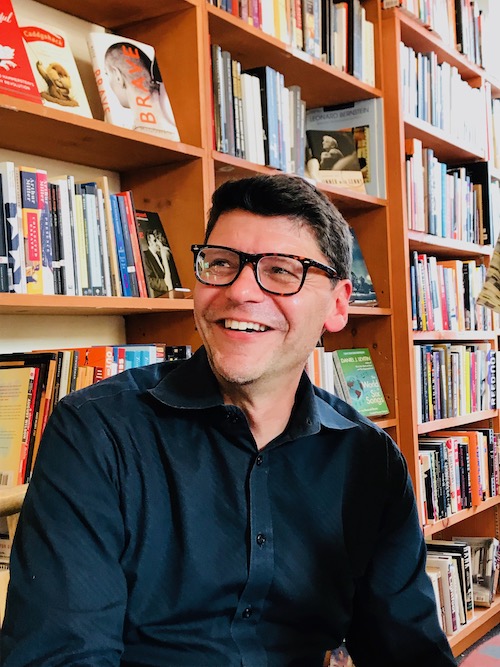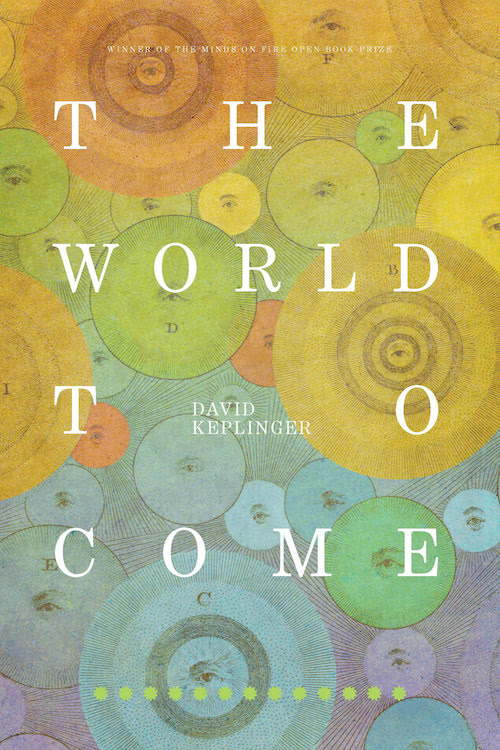Young André-Marie Ampère was there to witness the death of his father by guillotine, as the head fell from the body to which it belonged. Lifted from the basket, the father’s eyes met his son’s, sleepily, but blinking once or twice before awareness faded. Was he disgusted by this display? Was he moved by his father, the invisible link between father and son, as well as mind and body, momentarily, still there? I think he was moved: Ampère showed that parallel wires attract, providing their currents matched. There is no place in the universe, as far as we know, that his math does not apply. It comforts me, so I parallel my spoon to the right of my knife, as is the rule, the knife facing toward the bowl.
Basket
David Keplinger
Feature Date
- August 10, 2021
Series
Selected By
Share This Poem
Print This Poem
“Basket” from THE WORLD TO COME: by David Keplinger.
Published by Conduit Books & Ephemera April 30, 2021.
Copyright © 2021 by David Keplinger.
All rights reserved.
Reproduced by Poetry Daily with permission.

Photo:
Amy Gussack
Amy Gussack
David Keplinger is the author of seven collections of poetry, recently The World to Come (2021) and The Long Answer: New and Selected Poems (2020). In 2019 his collection Another City (2018) was awarded the UNT Rilke Prize. In 2020 he was the recipient of the Emily Dickinson Prize from the Poetry Society of America. He lives in Washington, D.C., and teaches at American University.
"No one writes prose poems like David Keplinger. He is one of a kind. Sui generis. But what does it mean? For me, it means that his imagination walks hand in hand with his sentences' music. He has an amazing sense of subtext—what is unsaid, in these pages, is perhaps even more important than what is said. He is a poet who takes the likes of Cortázar, Calvino and company and makes them waltz, not because he borrows from them but because he extends the conversation, brings it into our moment. Sui generis, indeed."
—Ilya Kaminsky
"David Keplinger’s The World to Come is a personal surrealism addressing boyhood and manhood, life and death—where the right-placed phrase or image changes the ordinary to satirical insight. These terse prose poems (en)act lyrical fables that assay philosophical worlds between worlds."
—Yusef Komunyakaa
Poetry Daily Depends on You
With your support, we make reading the best contemporary poetry a treasured daily experience. Consider a contribution today.




